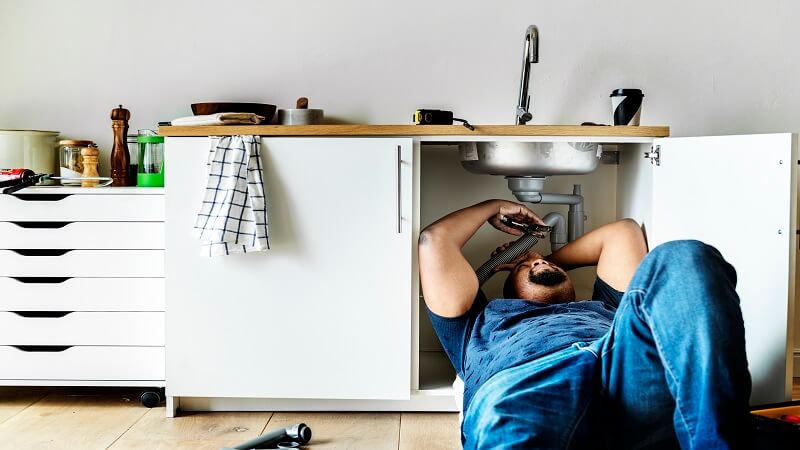A kitchen clog is an interference in your drainage, leading to the slow movement of wastewater. Signs of a clog are slow-moving drains, foul smells, foul water backflow, gurgling sounds, and complete blockages. Some clogs can be easily fixed without professional aid, while more serious ones require services from plumbing companies or visiting a plumbing supply store for specialized tools and solutions. Here are some common kitchen clogs and how plumbers solve them:
Soap Clogs
Bars soap comprises a base of oils and fats combined with potassium or sodium hydroxide through saponification. If these fats/oils are rinsed down your kitchen sink, they may solidify over time, leading to accumulation in the drain pipe. They may also mix with water minerals, forming a coat of soap scum that narrows the drainage pipes. Hot water and cleaning solutions can break down these fats, but in extreme cases, seek a plumber’s pressure cleaning services to unblock any interferences in your kitchen drainage system.
Food Scrap Clogs
Gradual disposal of waste food material like peelings and leftover food leads to a build-up in your kitchen drain. These particles, no matter how small, can combine with other things like soap scum to form more severe blockages. Fatty food particles and grease disposed into the kitchen drain also solidify, creating an unwanted coat in your drainage pipes. For less severe cases, you can fix clogs caused by food scraps using a plunger, a drain snake, or a drain cleaning solution. Plumbing companies use hydrojetting to eliminate blockages by food scraps. Using garbage disposals and compost bins can prevent clogs caused by food scraps.
Fats, Oils, and Greases Clogs
Solidifying fatty or greasy substances washed down the kitchen sink cause clogs. Oils and fats alter their form depending on the temperature; they liquidate in hot temperatures and harden in colder temperatures. They start accumulating and combining with other substances like water minerals and food scraps once they solidify. If not quickly addressed, this coating in your drainage pipe causes slower movement of water. Mixing detergents with hot water and pouring the solution down the drain can fix this by breaking down the fats and oils. Plumbers use pressure cleaning in cases where the hot water solution can’t break up the blockage.
Tree Roots Clog
Tree roots extend deep underground. Expanding roots may lead to the tree encroaching on drainage pipes, interfering with your kitchen’s drainage. Such interferences may be caused by cuts, cracks, blockages, or complete drainage failures caused by the growing tree roots. Plumbers can detect such complications through video inspection using specialized tools. Cutting the invasive roots and replacing the damaged sections of the drainage system can fix such clogs.
Mineral Build-Up Clogs
This is common in homes with hard water. Hard water contains minerals like calcium and magnesium, which form limescale. Over time, these minerals deposit on the walls of your drainage pipes and eventually form a coat. This leads to interference or complete blockages in your kitchen’s drainage. Water softeners that break down the mineral content should be installed to prevent it. Plumbers also descale your kitchen’s drainage pipes through hydro-jetting.
Get Help from Expert Plumbing Companies Today
If you have tools like plungers or drain snakes at home, you can fix many low-intensity clogs. Use cleaning solutions such as baking soda, vinegar, detergents, and hot water. Professional plumbers may be required to fix other, more severe clogs using advanced techniques and equipment. Find the most suitable plumber around you and resolve any kitchen clogs today.

